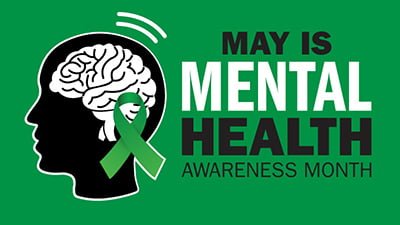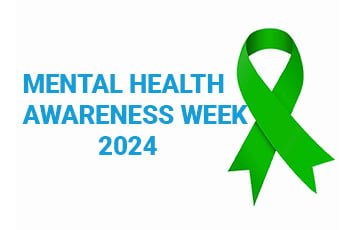Mental Health May – Let’s stop the stigma
From 13th – 19th May 2024, the UK is promoting Mental Health.
Results from the 2024 Mind Health Index show a rise in the number of people struggling – up by 3 points to 15% overall. Fewer than a quarter of people in the world are now flourishing (down by 1% to 24% this year), while just a third are getting by (down to 33% from 35%)
With the cost of living rising exponentially, and loneliness more prominent than ever due to the Work from home culture, it is important that the stigma around Mental Health is quashed and we treat this form of illness in the same way we do everything else. We all know that the NHS is under pressure and is struggling to keep up with our needs. That’s why we must look out for each other and know the signs that someone is struggling.

Some of the main signs of depression that we should be aware of are:
– Down, upset or tearful
– Restless, agitated or irritable
– Guilty, worthless and down on yourself
– Empty and numb
– Isolated and unable to relate to other people
– Finding no pleasure in life or things you usually enjoy
– Angry or frustrated over minor things
– A sense of unreality
– No self-confidence or self-esteem
– Hopeless and despairing
– Feeling tired all the time
Source – https://www.mind.org.uk/
Here are the 6 steps to Developing a safety plan if you are feeling low, anxious or stressed.
1. Identify warning signs.
What are my thoughts, mood or behaviors during times of crisis?
What do you experience when you feel extremely distressed?
2. Develop internal coping strategies.
What can I do to take my mind of my problems without contacting another person?
Practice a relaxation technique such as meditation
Engage in a physical activity or hobby like going on a walk or knitting
3. Identify people and social settings that provide distraction.
Who or what social setting will help take your mind off your problems at least for a little while?
Who helps you feel better when you socialize with them?
Example: My friend Bob likes to watch football. When I’m feeling down, I can go watch football with him. It will provide a distraction and I can enjoy the company of a friend without having to talk about my feelings.
Name_____________________________ Phone____________________
Place _____________________________
4. Have a list of people you can ask for help
List family members or friends who you can contact during crisis.
Name_____________________________ Phone____________________
Name_____________________________ Phone____________________
5. Make a list of professionals or agencies to contact during a crisis.
Clinician Name and Phone Number
Emergency Contacts
Urgent Care Services
6. How can I make my environment safe?
Encourage your loved one to complete a safety plan and keep it handy – maybe save it on his or her phone or keep a print out in a purse or wallet. And ensure that you have a copy too. The safety plan is designed to build a person’s sense of internal locus of control and is a helpful resource for both you and your loved one during times of crisis. Source – https://www.skylandtrail.org/
We hope that this advise can help anyone struggling. Let’s look after each other and stop Mental Health discrimination.











